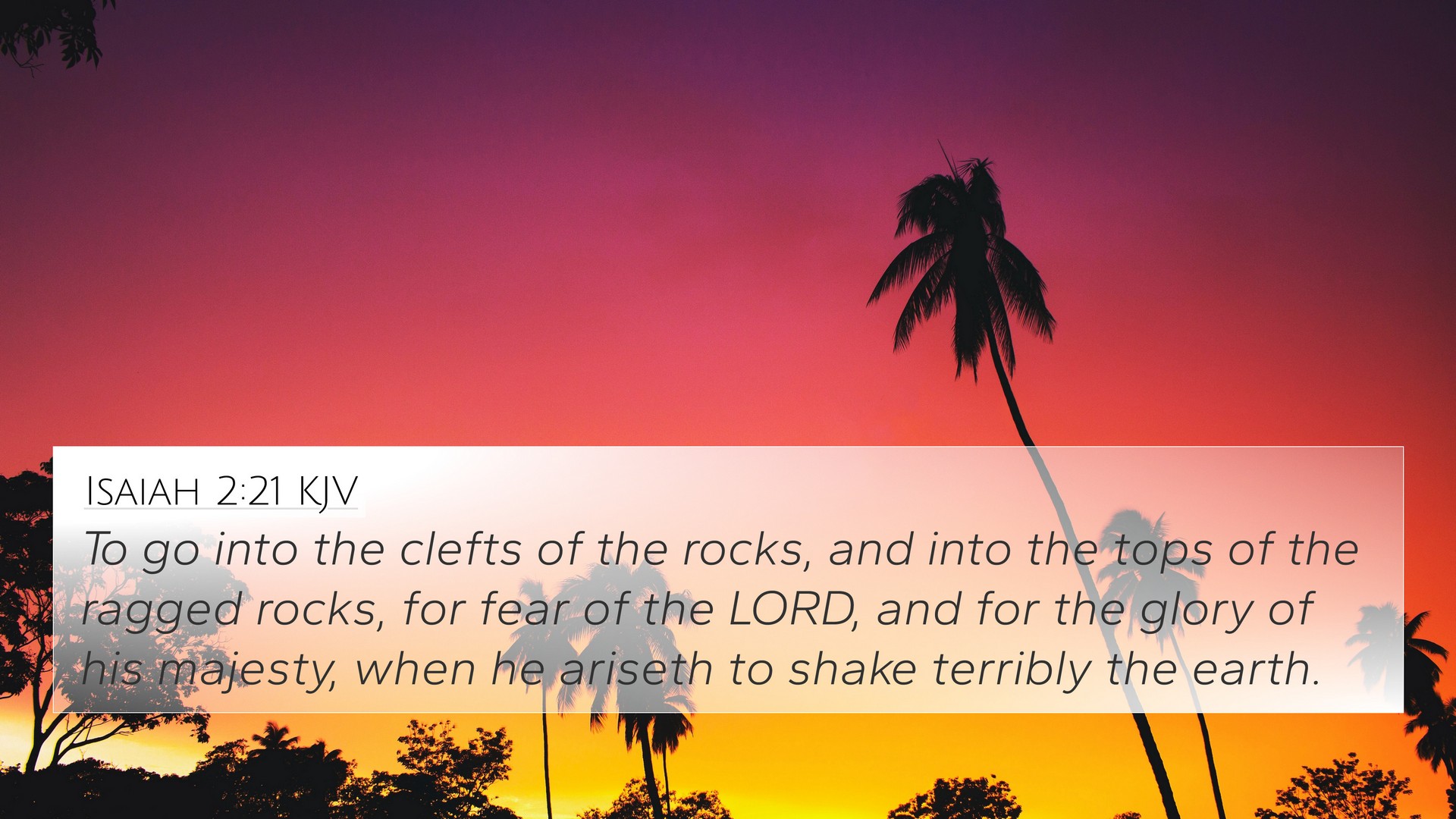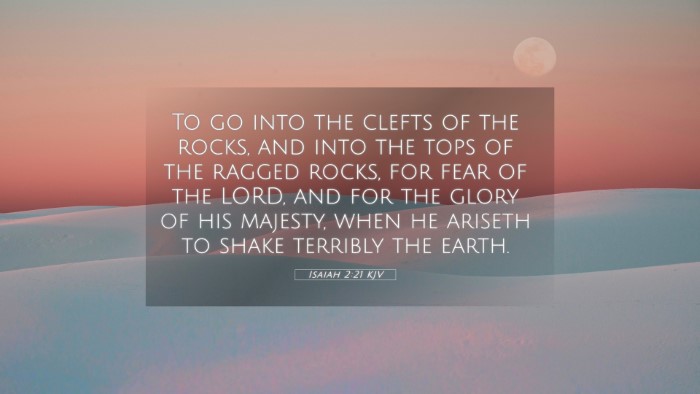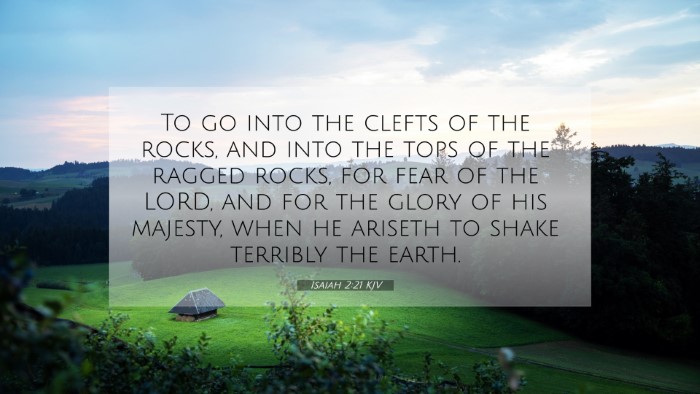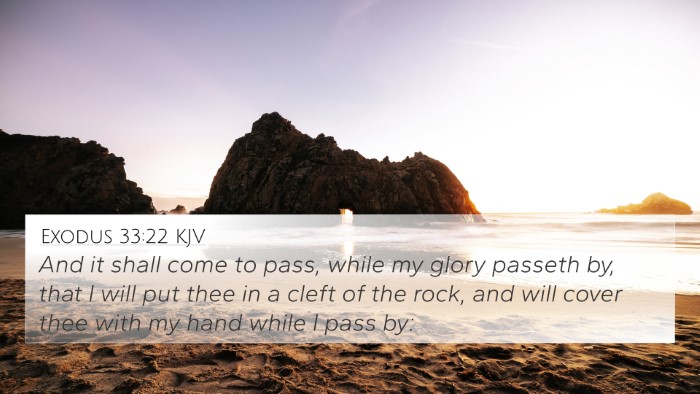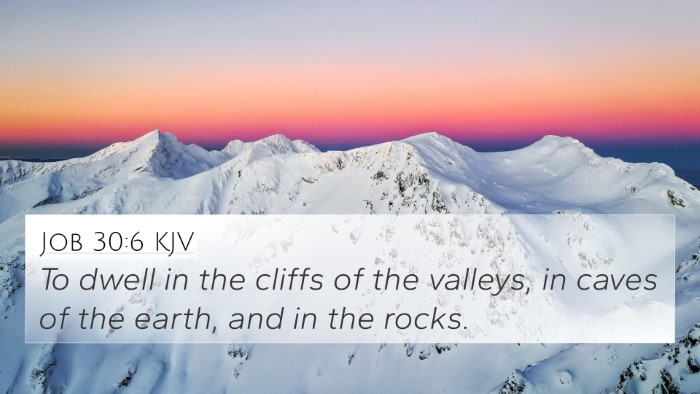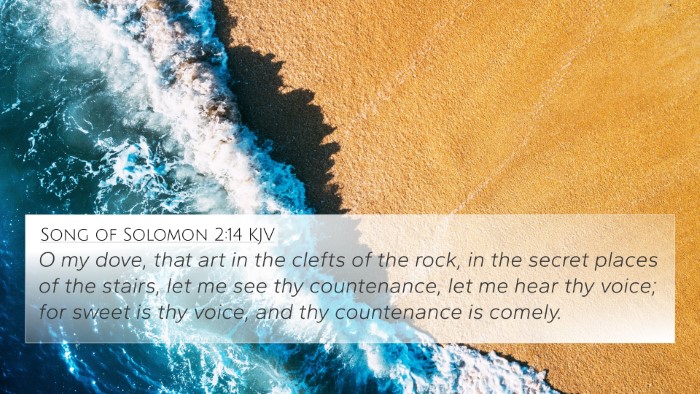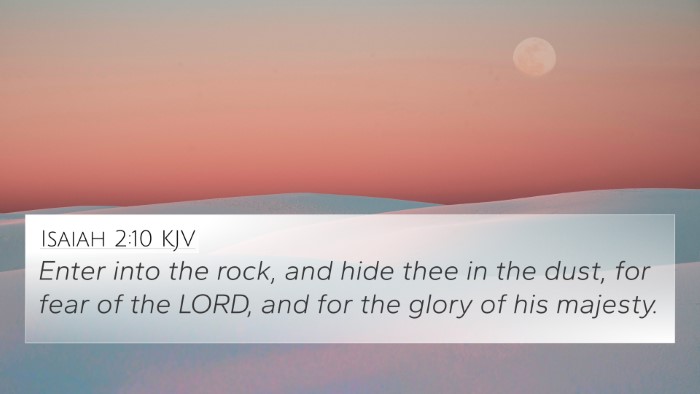Summary of Isaiah 2:21
This verse reads, "To go into the caverns of the rocks, and into the clefts of the cliffs, from the terror of the Lord and the splendor of His majesty, when He arises to shake the earth mightily." The interpretation of Isaiah 2:21 addresses the profound fear and reverence humanity experiences in the face of God's majesty and judgment.
Contextual Insights
In the context of Isaiah, this verse emphasizes the devastating consequences of hubris and the ultimate authority of God. Matthew Henry highlights that, at the time the prophecy was given, people were engrossed in their pride and self-sufficiency, neglecting the divine authority. They would be brought low when God's glory is revealed and His power is unmistakably displayed.
Moreover, Adam Clarke notes that this call to hide in the rocks signifies a recognition of God's sovereignty and a yearning for escape from His impending judgment. It symbolizes the futility of trying to evade divine wrath; the earth itself cannot provide refuge from Almighty God.
Detailed Analysis of the Verse
- Divine Judgment: Isaiah 2:21 speaks of God arising to shake the earth, suggesting a divine intervention that will disrupt human plans and instigate change.
- The Fear of God: The terror of the Lord evokes profound awe and respect for His power, prompting the people to seek refuge instead of rebelling against Him.
- Human Pride vs. Divine Sovereignty: The contrast between human pride and God’s authority is a recurring theme throughout Isaiah, accentuating humanity’s need for humility before God.
Bible Verse Cross-References
This verse has several connections to other biblical texts, enhancing our understanding through a cross-referencing approach:
- Revelation 6:15-17: Describes the kings of the earth hiding in the mountains and rocks, paralleling the imagery in Isaiah 2:21.
- Psalm 97:5: "The hills melted like wax at the presence of the Lord," illustrating God's overpowering presence.
- Hebrews 12:26-27: Speaks to God's voice shaking the earth, similar to the shaking in Isaiah 2:21.
- Amos 9:2: Discusses God’s omnipresence and inability of humanity to escape His judgment.
- Isaiah 13:13: The shaking of the heavens and the earth as a sign of God's judgment, tying thematically to Isaiah 2.
- Micah 1:3-4: Portrays God coming down and the mountains melting, reinforcing the imagery of divine presence.
- Matthew 24:29: Jesus' description of cosmic disturbances aligns with the shaking mentioned in Isaiah.
Thematic Bible Verse Connections
This verse connects with central themes in Scripture, including:
- God's Majesty: The splendor of His majesty is a theme seen throughout the Bible, from Genesis to Revelation.
- The Call to Repentance: The high calling for mankind to turn back from folly and seek the Lord reflects the overall biblical narrative.
- The Nature of God: The sovereignty and the fear of the Lord are echoed throughout both the Old and New Testaments.
Bible Cross-Reference Tools
To explore these connections further, one can utilize:
- Bible concordances: These tools provide an easy way to find where themes and words recur throughout scripture.
- Bible cross-reference guides: Created to facilitate deeper study across related verses.
- Bible chain references: This method allows for thematic studies that link verses thematically.
Conclusion
Isaiah 2:21 serves as a powerful reminder of the presence and authority of God in the world. Through cross-referencing and comparative analysis, readers can explore the rich connections between this verse and other biblical passages, facilitating a deeper understanding of the themes of judgment, reverence, and divine power. As we reflect on these connections, we are encouraged to embrace humility before God and recognize His sovereign control over all creation.
